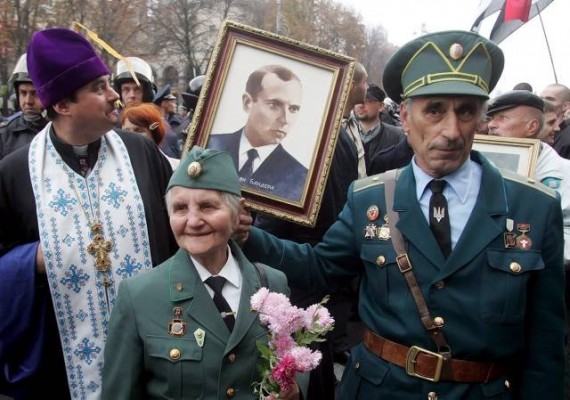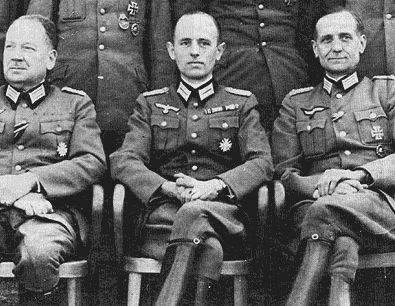No, Bernie’s not anti-war
by Kollibri terre Sonnenblume
Dateline: April 8, 2019
“A number of lefties are softening their criticism and some are even announcing their support for Bernie Sanders. Yet: Those who have watched Sanders for years – e.g., anti-war activists from Vermont – know better than to trust Bernie “Chavez is [a] dead, communist dictator” Sanders. When push comes to shove, he will side with imperialist power – e.g., voting against the invasion of Iraq but voting to fund the occupation.”
–Phil Rockstroh (2/27/19)
“One keeps looking for the moral clarity of Gene McCarthy, Wayne Morse or Mike Gravel from Bernie Sanders on issues of war and peace. Yet what we are offered is mush and drivel. One might be tempted to blame it on his age. But like Reagan, he knows exactly what he is saying and why.”
–Jeffrey St. Clair (2/23/19)
[dropcap]T[/dropcap]he Democratic Party has an undeserved reputation for being anti-war. The last time the party ran an anti-war candidate for president was George McGovern in 1972. The 1980’s was the last decade when it was typical of candidates to pledge “defense” cuts or nuclear arms reductions. Dennis Kucinich has been the only exception to that rule this century. In fact, the most successful anti-war candidate of the last twenty years was a Republican: Ron Paul, who made a notable splash in both 2008 and 2012.
Though he is not a member of the political party that writer Paul Street regularly refers to as the “dismal, dollar-drenched Dems,” Vermont’s Senator Bernie Sanders is once more seeking its presidential nomination and has signed the requisite “loyalty oath.” Sanders is often considered anti-war, but this is wishful thinking. His decades-long record in office demonstrates otherwise.
It’s telling that Sanders has been more likely to cast a vote that could be deemed anti-war when a Republican is president. That betrays an allegiance more to partisanship than principle. Given this pattern, one can rightly wonder if he would have pushed his resolution against US support of Saudi Arabia’s war on Yemen if Hillary had been elected. (Also note that the resolution would not end the US’s role even if Trump does not veto it, as he is expected to do.)
(Props: I must acknowledge that the biggest source for this piece was Counterpunch editor Jeffrey St. Clair’s 2016 book, “Bernie & the Sandernistas: Field Notes from a Failed Revolution,” which I quote frequently. Page numbers in brackets refer to that volume.)
IRAQ
Sanders’ vote against the Iraq war authorization in 2002, like Obama’s (and unlike Hillary’s) is held up as some real anti-war cred, but as St. Clair writes:
“More problematic for the Senator in Birkenstocks is the little-known fact that Bernie Sanders himself voted twice in support of regime change in Iraq. In 1998 Sanders voted in favor of the Iraq Liberation Act of 1998, which said: ‘It should be the policy of the United States to support efforts to remove the regime headed by Saddam Hussein from power in Iraq and to promote the emergence of a democratic government to replace that regime.’
“Later that same year, Sanders also backed a resolution that stated: ‘Congress reaffirms that it should be the policy of the United States to support efforts to remove the regime headed by Saddam Hussein from power in Iraq and to promote the emergence of a democratic government to replace that regime.’ These measures gave congressional backing for the CIA’s covert plan to overthrow the Hussein regime in Baghdad, as well as the tightening of an economic sanctions regime that may have killed as many as 500,000 Iraqi children. The resolution also gave the green light to Operation Desert Fox, a four-day long bombing campaign striking 100 targets throughout Iraq. The operation featured more than 300 bombing sorties and 350 ground-launched Tomahawk cruise missiles, several targeting Saddam Hussein himself” [pp. 37-38].
St. Clair adds: “Recall that over the 8 years of Clinton Time, Iraq was bombed an average of once every four days.”
SERBIA
The Bosnian War was the largest armed conflict in Europe since the end of World War II and caused over 100,000 deaths. The involvement of the USA and NATO in the war was a matter of controversy. Certainly, there was an anti-war stance to take, but Bernie didn’t rise to the occasion. As St. Clair writes,
“[Sanders] voted in favor of the war on Serbia: once, twice… and on April 28, 1999, he did it again. This was the astounding 213-213 tie vote, which meant that the House of Representatives repudiated the war on Serbia launched by Clinton in violation of Article One of the US Constitution., which reserves war-making powers to Congress. So if the ‘socialist progressive’ ‘anti-war’ Sanders had voted in line with the anti-war sentiments he has forged a career upon, the result would have been a straight majority for the coalition of Republicans and radical Democrats” [p. 2].
GEORGE W.’S WARS
Sanders voted for the 2001 Authorization for Unilateral Military Force Against Terrorists (AUMF), which, in St. Clair’s words, “pretty much allowed Bush to wage war wherever he wanted” [p. 37].
Not at all an anti-war vote, and one that had – and continues to have – far-reaching consequences.
VENEZUELA
On few other subjects of foreign policy are people in the USA more misled – including most liberals, and including Bernie – than on Venezuela. Most people here seem to think it’s some kind of authoritarian regime (while ignoring that the US is, to use Jimmy Carter’s words, an “oligarchy with unlimited political bribery”). Wrote St. Clair in 2015:
“In the wake of Jeremy Corbyn’s smashing victory as the new leader of Britain’s Labour Party, Hillary’s super-PAC, Correct the Record, tarred Sanders as a Corbyn-like renegade who had cozied up to untouchable figures like Hugo Chavez.
“About a decade ago, Sanders was part of a delegation that negotiated a sensible deal to bring low-cost heating oil from Venezuela to poor families in the northeastern United States. But instead of defending his honorable role in this ex parte negotiation, Sanders wilted. In a fundraising email to his legions of Sandernistas, Bernie fumed at being ‘linked to a dead Communist dictator.’
“Of course, Hugo Chavez represented everything that Bernie Sanders claims to be. Chavez is an independent socialist whose immense popularity in his own country led to his Bolivarian Party winning 18 straight hotly-contested elections since 1996, not to mention surviving several coup attempts backed by the CIA and the editorial board of the New York Times, plots that elicited not a squeak of dissent from Bernie the Red” [p. 21].
Hugo Chávez was very popular in Venezuela for good reasons. As Gabriel Hetland wrote in “The Truth about Chávez,” Chávez’s policies “led to vast improvements in access to health care, education, housing, and pensions. Poverty in Venezuela was cut in half between 2003 and 2008, with extreme poverty falling by 72%. …By 2012 Venezuela was the most equitable country in Latin America.”
Bernie’s recent remarks about Venezuela were hardly a strong statement against US meddling. Rather, after mischaracterizing the nation’s governance, economy and actions towards dissent, all Bernie could tepidly condemn was “a long history of inappropriately intervening in Latin American countries” [my emphasis] as if there is way of “appropriately” intervening. No, this is not an anti-war sentiment.
Ajamu Baraka put it well when he said:
“There will be no peace as long as we allow the mythology to persist that the U.S. is a benevolent nation committed to human rights and democracy. This is [the] basis of arrogance that allows the U.S. to trample on international law & invade and destroy nations and peoples.”
The common fallacy Baraka describes here is one that Bernie seems to subscribe to, as well as many of his supporters. This idea has no place in an anti-war platform. As long as it is embraced or accepted, the true nature of the U.S. cannot be seen clearly, which is imperialism.
RUSSIA
The Cold War between the US and the USSR ended thirty years ago, but was revived against the Russian Federation by Hillary and the Democrats during the 2016 presidential race. This dangerous development has pushed the world closer to nuclear conflict, an unimaginably terrifying prospect. It has also resulted in a new McCarthyism that, with the enthusiastic help of big tech giants like Facebook, Google and Twitter, has led to the marginalization of leftist alternative media and activism online.
Sanders has been totally on board. He has consistently supported sanctions against Russia (notwithstanding one particular vote against them, which he cast because of the bill’s stance on Iran). He voted for the 2014 $1 billion package to support the anti-Russian, neo-Nazi forces in Ukraine, another provocative move. He has also professed confidence in the Russia/Trump/collusion conspiracy theories, the pursuit of which has only ratcheted up tensions more, and served to distract the populace from reasons to oppose Trump that are not at all difficult to prove.
THE F-35 FIGHTER JET
The F-35 fighter jet program is notoriously expensive and the plane itself infamously buggy. With a price tag of $1.5 trillion, and a development process that started in 2001, it is considered one of the single most profligate Pentagon projects ever (see Scientific American, the Atlantic and yes, Fox). Even war-monger John McCain called it an “incredible waste of the taxpayers’ dollars.” Yet Bernie has been a staunch supporter since the beginning. Says St. Clair of the Senator’s enthusiasm:
“He’s a Cold War Liberal lost in a post-Cold War world. [He] clings to his death-dealing supersonic relics, most fervently to the F-35 Lightning II fighter jet. As Andrew Cockburn reported in Harper’s, Sanders and his Vermont colleague Patrick Leahy waged a fierce bureaucratic fight to bring the jet to the Burlington Air Base as the premier weapon of the Green Mountain Boys, the 158th Fighter Wing of the Vermont Air National Guard. At $191 million per aircraft, the F-35 represents a technological wish-fulfillment for the defense lobby. Larded with the latest high-tech thanatic gizmos, the porcine and unstable Stealth fighter will prowl cloud-free skies (too dainty to fly in rain) on an endless quest to confront an enemy that no longer exists, and perhaps never did” [p. 22].
Activist Carl Gibson put Bernie on the spot about this topic in person, and Bernie said: “for better or worse, that is the plane of record right now, and it is not gonna be discarded. That’s the reality.” But that wasn’t a good answer to Gibson, who wrote:
“So, while Bernie Sanders is saying we should cut military spending to fund free college for everyone, his defense of the F-35 means that despite everything else, Sanders is still just a politician. Sooner or later, the F-35 will eventually be replaced by something even more expensive, while the F-35 joins the thousands of other unused fighter jets in the boneyard. But rather than lying to people and saying the program is already a done deal and that there’s nothing he can do, Sanders could stand by his principles and introduce an amendment in the next National Defense Authorization Act to strip the F-35 program of its funding. That remaining $700 billion could make college tuition-free for everyone for at least a decade.”
CAMPAIGN CONTRIBUTIONS FROM “DEFENSE INDUSTRY”
According to opensecrets.org, in the 2016 race, Sanders took $366,458 from the Defense Industry, only 8% less than Trump and about 1/3 as much as Hillary accepted. Given that even peacenik Jill Stein is down for $26,395 in this category, one might wonder how it is defined, but that’s just too much to be called anti-war.
WHY DOES IT MATTER?
“This is the bottom-line, if you support imperialist politicians, no matter what ‘freebies’ they are promising, you support murder. We cannot, or should not, have ‘nice things’ here in [this] country when we are bombing so many more. Something has to give, and it has to be imperialism.”
– Cindy Sheehan
First, there are ethical considerations. That is, the idea that war is intrinsically wrong on moral grounds, and that conflicts should be settled by other means that are non-violent (with exceptions for legitimate self-defense). Pacifism has been preached and practiced by religious and secular people alike during the entire history of the US. Certainly, it has been more or less popular during different periods – and seems to be suffering a nadir at the moment, at least as a visible and vocal cultural force – but it has never completely withered. Such people and organizations operate as a vital conscience for the nation. From this standpoint, Sanders is flatly unacceptable.
Every gun that is made, every warship launched, every rocket fired signifies, in the final sense, a theft from those who hunger and are not fed, those who are cold and not clothed. This world in arms is not spending money alone. It is spending the sweat of its laborers, the genius of its scientists, the hopes of its children. This is not a way of life at all in any true sense. Under the cloud of threatening war, it is humanity hanging from a cross of iron.
–Eisenhower
Secondly, there is the financial reality that war-making is bleeding the US dry. Every dollar for bomb-building is money that cannot be spent on projects that actually keep people safe, housed, fed, healthy and productive for the common good. Think of the bridges falling down, the homeless on the streets, the children who need free school lunches, the prohibitive cost of “healthcare” and the amount of creativity and labor sucked up by industries that are destructive (resource extraction, defense, big ag), soul crushing (the service industry, advertising, tech) or unnecessary (the FIRE sector: finance, insurance and real estate). (1) This is a profoundly sick society indeed. In his speech announcing his entry into the 2020 race, Sanders called for cuts to military spending that have been described as “deep” but have not been quantified so far. Given the contradictions in his record, Peace activists Medea Benjamin and Nicolas J. S. Davies rightly ask: “’Which Bernie would we see in the White House?’ Would it be the one who has the clarity and courage to vote ‘No’ on 84% of military spending bills in the Senate, or the one who supports military boondoggles like the F-35…?”
St. Clair, again:
“It is one of the great failures of the Sanders campaign that he didn’t try to puncture some of the comforting illusions about American foreign policy. As cruelly as we treat our own citizens, Americans like to believe, in fact must believe, that our country remains a force of light and goodness in the most troubled precincts of the world. We are reluctant warriors, heroes for humanity. Sanders had a rare chance to expose America’s savage imprint on the world to his followers. With more than 800 military bases sprawling across the globe, the American military machine keeps the unruly living under a constant state of nuclear terror, each transgression against the imperial order disciplined and punished by SEAL team assassins, cruise missiles and drone strikes out of the clear blue skies” [pp. 2-3].
Last, but not least, is the stark reality of the planet’s dire environmental condition. Pollution is poisoning virtually all living things and climate change is threatening the existence of a large percentage. This has been the legacy of agriculture and industrialization. To address this challenging situation, we need global cooperation. But such teamwork is impossible while the USA is such a bellicose bully. A tremendous amount of the world’s energy, resources and time go into fending off or paying off the USA and its resource-extracting corporate overlords. This current state of affairs must end and be replaced with a real camaraderie in spirit and in labor. (And by the way, the Pentagon is also the world’s largest institutional polluter.)
So, given the existential crisis that humanity is facing at this moment in history, to demand that the president of the USA be dedicated to a real anti-war platform is not a “purity test.” It is an entirely practical matter. Nothing less will do than a drastic reduction in “defense” spending and a complete turn-around of US foreign policy.
I’m not naive. I realize that no such candidate would be allowed to run on either major party ticket, and that third parties don’t have a chance. So, it is not into candidates or elections that we should put our efforts, but movements. An anti-war movement of sufficient size and energy could successfully guide the actions of whomever lives at 1600 Pennsylvania Ave.
So let us put our hopes not in heroes but ourselves.
Behind the Money Curtain: A Left Take on Taxes, Spending, and Modern Monetary Theory). Second, the assumption that plutocratic regimes will spend on domestic needs and evident necessities when the money is available is also not supported by the historical record. The bourgeoisie‚ like previous regimes resting on deep social inequality, rarely allocates funds according to popular need, but according to its own narrow and self-serving priorities. If they did, revolutions would hardly appear in history. It is always the constant abuses of the entrenched right that create the left. Thus, while the US is notorious for the disgusting amounts thrown every year at the imperial war machine (and to feed the self-perpetuating warmongering lobbies), other affluent nations where such extravagance is not so pronounced, or does not exist all, also practice “austerity” and glaring neglect of citizens’s needs in varying degrees. They may have the money, but they will not use it for the good of the majority. In conclusion, ultimately, what determines the actual balance between truly justifiable and questionable expenditures is the degree of true democracy, the existence of a well-informed and mobilised citizenry, and the resulting government oversight exhibited by the polity. The more democratic, the less likely the appearance of such grotesque disparities.

THIS WORK IS LICENSED UNDER A Creative Commons Attribution-NonCommercial 4.0 International License











